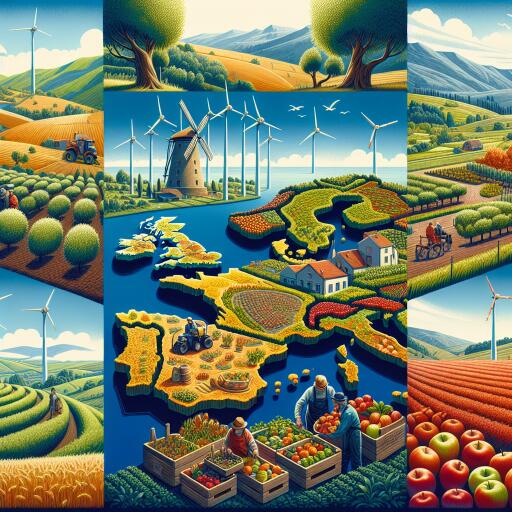
For Healthier More Sustainable Food In Europe
As global challenges such as climate change, biodiversity loss, and public health crises increasingly demand our attention, the need for a transformation towards healthier and more sustainable food systems in Europe has never been more urgent. The European Commission’s commitment to shift European agriculture towards a greener, more plant-based, and resilient model is imperative in the face of these issues. This transformation is particularly significant in the context of the Farm to Fork Strategy, which aims to revolutionize the EU’s food system to make it fair, healthy, and environmentally-friendly.
The recent establishment of a transatlantic collaboration platform on agriculture has raised concerns about potential setbacks. This initiative, while ostensibly aimed at addressing sustainability and climate issues, is viewed by some as a maneuver by external interests to sway European policy-making and dilute the ambitious Farm to Fork Strategy. The strategy itself is a bold move, challenging years of conventional practices and the heavy inclination towards animal agriculture, thereby disrupting the entrenched interest in maintaining a status quo that favors large-scale, industrial farming operations. Such operations have profound negative impacts on public health, the environment, and animal welfare.
Europe’s willingness to import animal products, particularly beef and dairy from the United States, puts it at a crossroads. The U.S. has expressed opposition to the Farm to Fork strategy, citing concerns over agricultural productivity and economic implications for both consumers and producers. This resistance is emblematic of a broader struggle between progressive environmental policies and traditional agricultural interests, particularly those represented by the Sustainable Productivity Growth Coalition in the U.S., which criticizes the EU’s strategy for potentially leading to a decrease in agricultural efficiency.
However, the benefits of transitioning towards a more sustainable food system resonate far beyond the borders of Europe. For the United States, embracing similar reforms could lead to significant health outcomes for its population, including reducing obesity and diet-related diseases. Furthermore, a move away from industrial animal farming could substantially decrease greenhouse gas emissions and mitigate the destruction of biodiversity due to harmful agricultural practices.
The European Commission is at a pivotal moment. The successful implementation of the Farm to Fork strategy requires not just resilience in the face of external pressures but an unwavering commitment to environmental stewardship, public health, and animal welfare. Such a commitment would not only align with the EU’s objective to achieve carbon neutrality by 2050 but also represent a crucial step forward in transforming lifestyles for the betterment of people and the planet. The path forward is clear: Europe must prioritize its agricultural revolution, ensuring a healthier, sustainable future for all.
In these times of environmental and health crises, wavering in the face of opposition could undermine Europe’s leadership in global sustainability efforts. The stakes are high, and the European Commission’s actions now will determine not only the future of the continent’s food system but also its role as a global pioneer in the fight against climate change and for healthier lifestyles. The Farm to Fork strategy is not just a policy framework; it is a testament to Europe’s commitment to a sustainable future, and it must be vigorously defended for the sake of present and future generations.





Leave a Reply